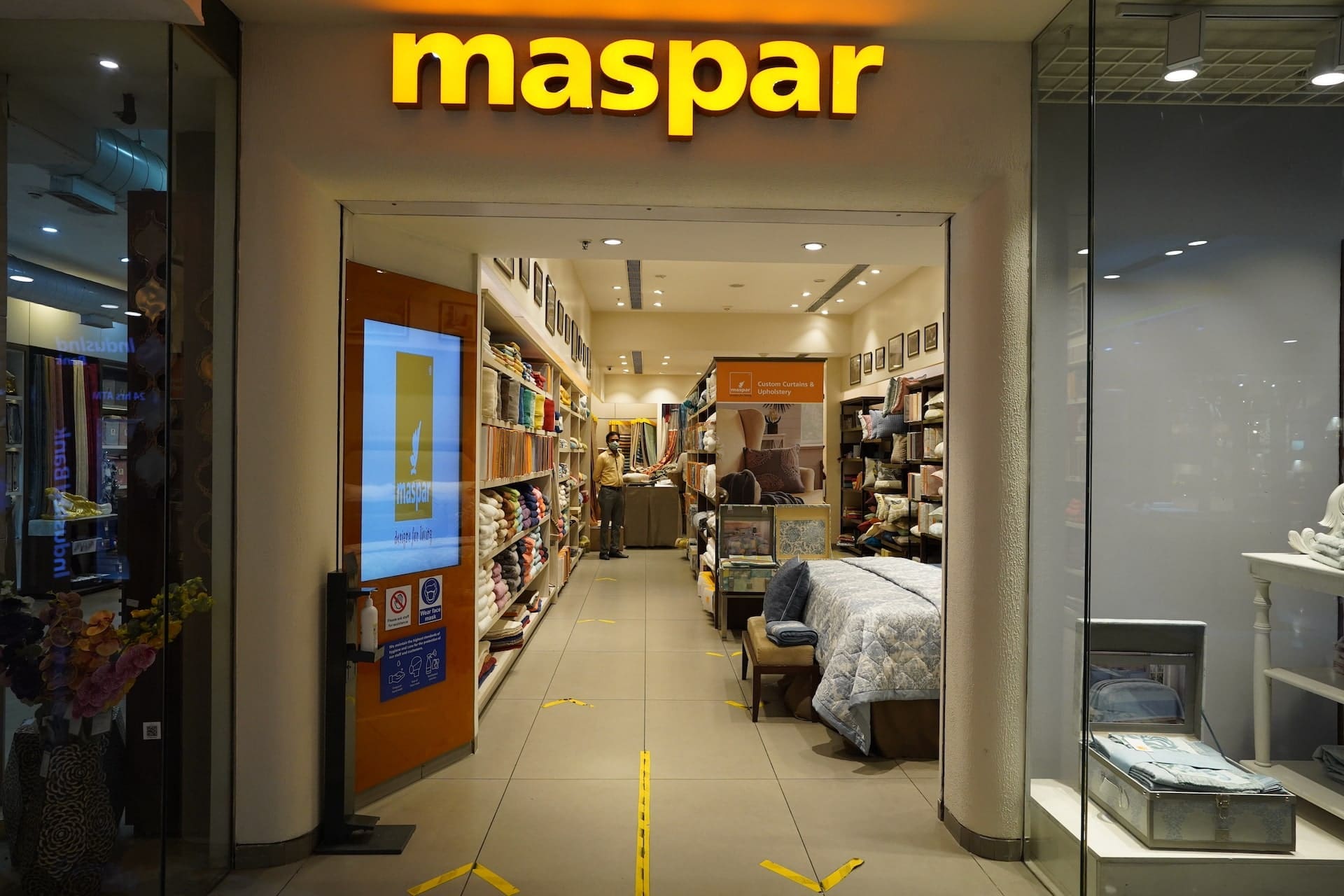In an exclusive interview with Divya Shetty, Abhinav Mahajan, Director of Retail at Maspar Industries, sheds light on the company’s journey, current industry trends, and plans. With its headquarters in Panipat and a robust presence in the export manufacturing business since 1969, Maspar has established itself as a prominent player in the home textile industry. The company boasts a vertically integrated facility and has earned a reputation as a trusted private label manufacturer for major international retailers.
Expanding Horizons:
Under the visionary leadership of Abhinav Mahajan, Maspar took a significant step forward in 2002 by launching its brand, Maspar, with the opening of its first company-operated store. Over time, Maspar expanded its reach through shop-in-shop concepts in renowned multi-brand outlets like Home Centre and Home Stop. The company also tapped into the traditional specialty mom-and-pop stores in the general trade sector dealing exclusively in home furnishings. In 2013, Maspar extended its global footprint by partnering with international retailers to sell its products under the Maspar brand.
Overcoming Challenges:
The home textile industry is not without its challenges. Fierce competition and rapidly changing consumer preferences are two major hurdles faced by industry players. To tackle these challenges, Maspar has adopted an agile and responsive approach. The company continuously invests in research and development to stay ahead of design trends and market demands. By maintaining a robust supply chain management system, Maspar ensures efficient production and cost competitiveness. Quality assurance remains paramount, with a commitment to meeting and exceeding customer expectations.
Promising Growth Opportunities:
The Indian home textile market is ripe with opportunities. Urbanization, rising disposable incomes, and a growing focus on home decor are key factors contributing to this growth. Maspar is well-positioned to harness these opportunities. With plans in place to expand its product range and cater to a wider customer base, Maspar aims to penetrate untapped markets. Leveraging e-commerce channels is another strategy the company is deploying to reach a broader audience and offer convenient access to its products.
Design and Technological Innovations:
Maspar prides itself on keeping up with the latest trends in home textiles. By embracing sustainability and eco-friendly materials, the company has incorporated organic cotton, recycled fibres, and eco-friendly dyes into its production processes. Furthermore, Maspar is exploring the integration of smart textiles that enhance comfort and convenience into its product lines. The company also invests in state-of-the-art digital printing technology, allowing for intricate and customizable designs that give its products a competitive edge in the market.
Government Support and Incentives:
The Indian government has formulated various schemes to support the textile industry. Maspar actively participates in these programs, taking advantage of subsidies for technological upgradation, export incentives, and support for skill development. By leveraging these incentives, Maspar invests in technology and skill enhancement to align its products and processes with international standards and evolving customer needs. The company proudly uses the tagline “Made in India, for The World” across its product line, reflecting its commitment to local manufacturing.
Sustainable Practices:
Sustainability lies at the heart of Maspar’s operations. The company has implemented water recycling measures to minimize waste and reduce its environmental footprint. Additionally, Maspar utilizes eco-friendly dyes and sources materials like organic cotton and recycled fibres to promote environmental responsibility. Since 2014, Maspar has been a recipient of the green building certification, further affirming its dedication to sustainable practices.
Future Growth Strategies:
Looking ahead, Maspar has devised a comprehensive market expansion plan. Domestically, the company aims to reach tier-2 and tier-3 cities, making its products more accessible to a wider customer base. Internationally, Maspar intends to tap into new markets through e-commerce platforms and partnerships with global retailers. Product diversification is also a key focus, ensuring Maspar caters to a broader range of consumer needs while maintaining its reputation for quality and innovation.
Conclusion:
With a pioneering spirit rooted in innovation, sustainability, and strategic expansion, Maspar Industries continues to lead the way in the Indian home textile industry. By anticipating and meeting evolving consumer needs, Maspar is not only contributing to the industry’s growth but also ensuring its enduring success.

